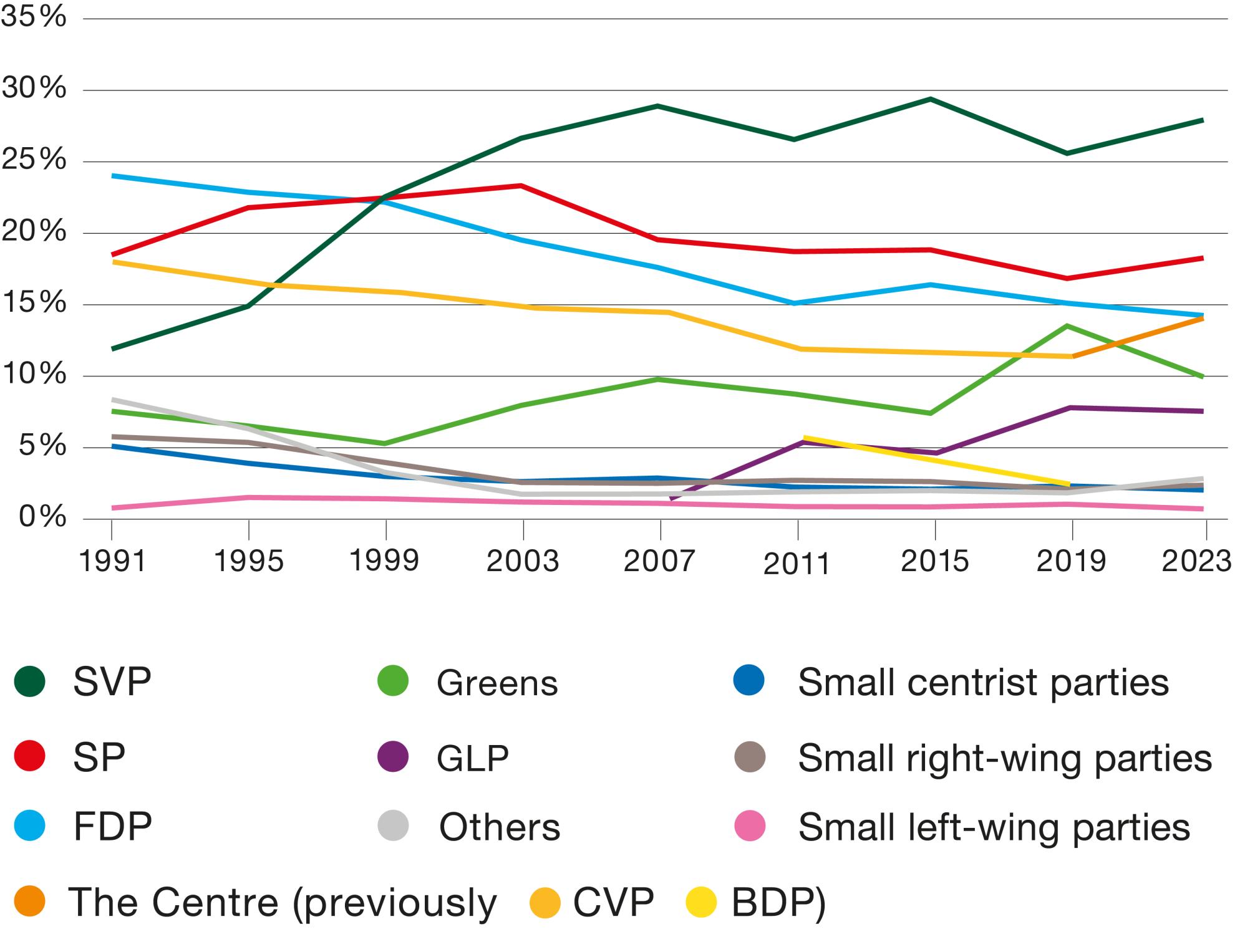Elections
Elections to the Federal Assembly are held
every four years. Voters aim to elect the 246 members of parliament that best
represent their views. They have a large number of candidates from a wide range
of parties from which to choose.
Elections to the National Council
Elections
to the National Council are federal elections. The provisions of the Federal
Act on Political Rights apply in all cantons.
Right to vote and to be elected
Swiss
citizens over the age of 18 are eligible to vote: not only can they vote for the
members of the National Council (right to vote), they can also stand for
election to the National Council (right to be elected).
Elections based on proportional representation
Elections to the National Council in
most cantons are based on a system of proportional representation: seats are
allocated in proportion to the number of votes each party or party list receives.
Dates
The most recent federal elections were held on 22 October 2023. The next elections to the National Council and (in the most cantons) the Council of States will be held on 24 October 2027.
Elections to the Council of States
Elections
to the Council of States are governed by cantonal law: each canton has its own
rules on who is eligible to vote, when elections are held, what the election
procedure is and how ballot papers are completed. However, the following rules
are the same in all 26 cantons: elections to the Council of States are held
every four years and candidates for election to the Council of States must be
at least 18 years old and hold Swiss citizenship.
Elections based on the simple majority system
Elections to the Council of States in
almost every canton are based on the simple majority system: the person who receives
the most votes is elected.
Examples of cantonal differences
In the canton
of Glarus, Swiss citizens aged 16 and 17 can also vote in elections to the
Council of States. Candidates for the Council of States must be under the age
of 65. In Appenzell Innerrhoden, voters elect their member of the Council of
States at an outdoor assembly (‘the Landsgemeinde’), which is always held in
the April before the elections to the National Council. In the cantons of Jura and Neuchatel, a system of proportional
representation is used, while in the other cantons the simple majority system applies. Swiss citizens living abroad are only eligible to vote in certain cantons.
Parties from left to right
In the elections to the Swiss Parliament, there
are quite a number of parties to choose from, some very different from others. They
differ from each other
in their views on the role of the state, society and the economy.
Whereas
left-wing parties (SP, the Greens) favour a highly developed social state,
right-of-centre parties (FDP,
SVP) advocate a liberal economic policy and personal responsibility.
Certain political issues are neither distinctly left nor right-wing, i.e.
environmental protection, the question of how open Switzerland should be
towards the EU and international organisations, and issues regarding liberal
values (e.g. same-sex partnerships). Depending on the issue, centre parties (e.g. ‘The Centre’, previously
the CVP) will cooperate with either left or right-wing parties.
Political
parties help to form political opinion, nominate candidates for public office
and launch initiatives and referendums. Parties differ from each another in
their views on the role of the state, society and the economy
What does ‘left-wing’ mean?
A strong social state that levels social disparities
Emphasis on workers’ interests
Price controls, public services
More peace policy, less military
What does ‘right-wing’ mean?
Freedom and personal responsibility; the state intervenes
only where absolutely necessary
Emphasis on employers’ interests
Free enterprise, economic incentives
Strong national defence
Party strengths (shares of the vote in elections to the National Council 2019)

Elections are decisive
Even in Switzerland most issues are decided by Parliament or the government. However, between the elections in 2019 and 2023, the electorate was called on to vote on 36 specific proposals. In the same period, Parliament passed 515 laws, including 187 federal acts and 83 federal decrees. It also elected the government, the members of the federal courts and the Attorney General.